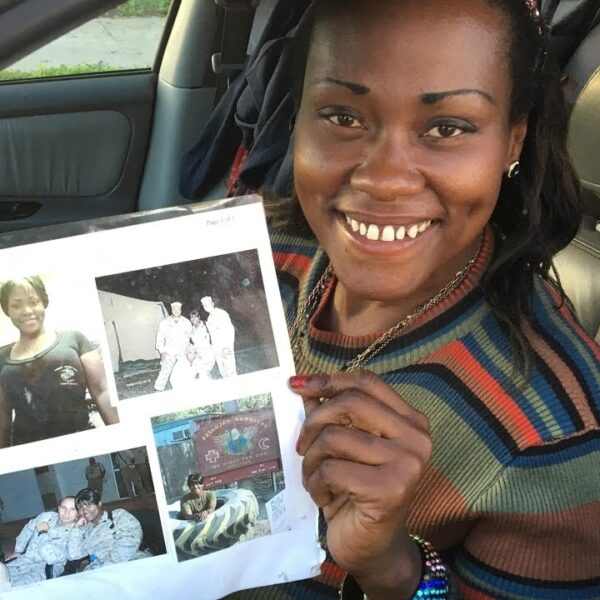We all know at least one person who views homeless people negatively. Maybe they have fully formed opinions around homelessness, with reasons to back them up and large-scale ideas about what society should do. Or maybe you have that friend who sticks up their nose when driving past an encampment, locks their car door when idling next to a panhandler, or makes a comment about homelessness is “ruining” a city.
For those of us with a knee-jerk reaction to prejudice and hate, it’s tempting to respond aggressively. We may feel emotions like shock, hurt, disappointment, and anger. If the offensive statements come from a close friend or family member, it’s even harder to stay level-headed. And yet, that’s what we must do. Because while speaking from emotion may be gratifying, it won’t change anyone’s opinion. You’ll only hurt your relationship with that person and miss out on any chance you may have had to change their mind.
As difficult as it is, it’s better to take a calm, fact-based approach. Conversation is much more effective than confrontation. You may not be able to change their mind in that conversation, or even at all. It’s important to remember that in many cases, even if you were to present the perfect argument with perfect delivery, you still wouldn’t reach them. But you can hope to plant a seed. One day, that person may soften their views and consider another perspective.
Learning to respond versus react is difficult and takes practice. Below are a few tactics and tools you can use to develop this approach. Hopefully, by being kind and calm, you can influence others to be compassionate toward homeless people.
Know What You Believe
It’s common to know more about what you disagree with than what you agree with. This is a driving force behind circular arguments and yelling matches. You need to be just as passionate about what you think is right as you do what is wrong. If you don’t speak from a core set of values and beliefs, you will only ever be reacting. You’ll be placing the focus on the other person when you should be focusing on the topic itself. The goal is to move away from prejudice and hurtful rhetoric and toward solutions and goals.
Consider creating a list of principles you believe in, with solid reasons for each. They should be broad and straightforward. An example may be, “I believe homelessness could happen to anyone.” Follow that up with reasons you believe this; now is the time to add specifics:
- “People who become homeless were often raised in poverty.”
- “People often become disabled before becoming homeless.”
Make sure you have beliefs about solutions to problems, so you’ll have an answer when someone asks you for alternatives to, for example, breaking up tent cities.
Have Your Facts Ready
Always be prepared to be challenged. You don’t need to have a list of statistics memorized, but it doesn’t hurt to have a few. Also, sources can be more powerful than specific numbers. Your sources should be credible, objective, and responsible (that is, free of bias and propaganda). Academic journals and government publications are good places to source information.
To prepare, consider the most common myths around homelessness. Many people believe living next to a shelter or in a city with many shelters means more danger and crime. Good responses in this case are:
- “Actually, research from The Guardian shows homeless shelters can make a community safer.”
- “The Washington Post looked at several studies and found shelters rarely increase crime.”
This gives you credibility and moves the conversation in a positive, productive direction.
Keep Your Cool
If you have a strong set of beliefs, you may also find you become passionate when talking about them, especially when they’re challenged. But if you let a strong emotional reaction take over, you create a gap between you and the other person. They might become defensive or argumentative if they weren’t already.
In addition, a heightened emotional state may make it harder for you to think clearly, and the clarity and organization of your information will suffer. You may fumble or forget what you want to say.
To combat this, understand and expect to have an emotional reaction. Try different coping methods for anger, hurt, frustration, etc., and find what works best.
A few skills you may try are deep breathing, counting, or focusing on something you can sense (a sight, smell, taste, sound, or touch). If you can stay calm and keep your emotions regulated, you’re more likely to have a productive conversation and ultimately more likely to create a shift in perspective.
Seek Collaboration
Don’t view the interaction as “me versus them.”
Avoiding making a discussion personal is the best thing you can do to not only stay calm but make a difference. This is difficult because the subject could be personal. Maybe you’ve been homeless before or are close to someone who has experienced homelessness. Even in these cases, you should have a goal of collaboration.
Try to separate in your mind the person from their opinion. Again, it isn’t easy, but assume they are coming from a place of good intent. Nobody genuinely wants people to be homeless or wants homeless people to suffer. (If they do, you can’t help them, and you should probably distance yourself from them.)
Reframe your thoughts—this person has different ideas about how to end homelessness, and they may come from a personal place too. Ask questions like:
- “Why do you believe in that solution?”
- “Where does your opinion on this come from?”
Actually listen to their answer before responding.
A critical skill in persuading and influencing others is disagreeing while remaining respectful. Even if you cannot change someone’s mind, at least you won’t have done harm. If you lose your cool and become aggressive, that person will never forget it, and in their mind, the issue will always be intertwined with your behavior.
To prepare yourself as much as possible for these situations, keep reading our articles, watching our videos, and learning as much as you can about homelessness. Share what you learn. If you follow these principles, you may make a difference.













